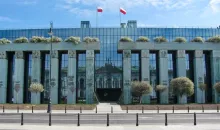Top 3 Posts from January and February from our IP Law blogs
February 28, 2017
To ensure you don’t miss out on interesting IP law developments reported on our other IP blogs, we will, on a regular basis, provide you with an overview of the top 3 most-read posts from each of our IP law blogs. Here are the top posts from January and February 2017.
 Top 3 Kluwer Copyright Blog posts of January/February
Top 3 Kluwer Copyright Blog posts of January/February
1) Linking to illegal content can constitute a copyright infringement – CJEU Sanoma interpreted by a German Court by Jan Bernd Nordemann and Viktoria Kraetzig
"In GS Media vs. Sanoma, the CJEU recently ruled that linking to illegal content may be considered to be a “communication to the public” and can therefore constitute copyright infringement (C-160/15 of 8 September 2016). The District Court Hamburg has now been among the first German courts to take account of the CJEU’s decision. The Hamburg court has, in particular, interpreted what constitutes a “for profit” link and what duties the linker has to check the legality of the content linked to."
2) GS Media in the National Courts: Fresh Issues on the meaning of ‘for profit’ by Geert Lokhorst
“Lower courts can give fresh insight into the adjudication taking place at the highest national and European courts. This is especially true for the recent GS Media case. The German and Dutch courts have created new food for thought on the meaning of placing a hyperlink ‘for profit’.”
3) The ECJ condemns the French Act on digital exploitation of out-of-print books by Brad Spitz
“The French Act No. 2012-287 of 1 March 2012 ‘on the digital exploitation of unavailable books of the twentieth century’ created a specific compulsory collective management system for out-of-commerce books … These new provisions were intended to allow the digitisation and reissuing of books that are still protected by copyright, but no longer exploited (‘out-of-print’ books) …However, the ECJ, in its judgment of 16 November 2016 (Case C‑301/15), ruled that Articles 2(a) and 3(1) of Directive 2001/29/EC of 22 May 2001 on the harmonisation of certain aspects of copyright and related rights in the information society must be interpreted as precluding such national legislation.”
 Top 3 Kluwer Trademark Blog posts of January/February
Top 3 Kluwer Trademark Blog posts of January/February
1) German Federal Patent Court cancels shape mark for sweets due to its mere technical function by Bettina Clefsen
“Following a request for cancellation, the Federal Patent Court decided to cancel a shape mark for sweets arguing that it exclusively consisted of a shape necessary to obtain a technical result.”
2) Draft of a new Trademark Act (Markenrechtsmodernisierungsgesetz) by Ulrich Hildebrandt
“On 3. February 2017 the German Federal Ministry of Justice and Consumer Protection presented a draft of an act to implement Directive (EU) 2015/2436 of the European Parliament and of the Council to approximate the laws of the Member States relating to trade marks ... The draft closely follows the provisions of the Directive and merely fulfills its aims. The only change that is not mandatory due to the Directive is a proposal for a new fee structure similar to that of the EUIPO. The Ministry hopes to adopt this law before the next German Bundestag is elected in autumn 2017.”
3) Are you threatening me? Unjustified threats almost creep into EU trade mark enforcement by Julius Stobbs
“For manufactures of steam engines in the late 19th century, tactics of systematically threatening to sue your competitors’ customers for infringement of intellectual property rights were fair game. Nowadays, businesses in the UK have to contend with the laws on unjustified threats which prohibit such unscrupulous practices. Whilst this undoubtedly protects businesses from being bombarded by spurious claims, on the flip-side it can make enforcing legitimate brand rights dangerous territory.”
 Top 3 Kluwer Patent Blog posts of January/February
Top 3 Kluwer Patent Blog posts of January/February
1) Italy ratifies the Unified Patent Court Agreement by Kluwer UPC News blogger
“Italy has ratified the Unified Patent Court Agreement. It is the 12th member state of the Unitary Patent project to do so. The instrument of ratification, the formal final step in the procedure, was deposited with the EU Council on 10 February 2017.”
2) ‘The Unitary Patent system has become an emergency patchwork’ by Kluwer UPC News blogger
“Since the UK announced it wants to ratify the Unified Patent Court Agreement despite the Brexit vote (last week the new IP minister of the UK, Jo Johnson, repeated the announcement of his predecessor Baroness Neville-Rolfe), preparations for the system have restarted in full, despite the fact that a British membership brings about uncertainty. Prof. Dr. Thomas Jaeger, European law expert of the University of Vienna, is very critical of the way the UP system has been pushed through over the last years, most recently after the Brexit vote. Kluwer IP Law interviewed Dr. Jaeger.”
3) UK will ratify UPCA in March and has political will to stay in Unitary Patent system post-Brexit by Kluwer UPC News blogger
“The UK will ratify the Unified Patent Court Agreement (UPCA) in March, most likely before the Brexit article 50 is triggered. German will be ready to ratify soon as well, but will delay the official deposit of its instrument of ratification with the EU Council, with a view to the Court starting its operations on 1 December 2017 (art 89 UPCA), preceded by a Provisional Application Phase.
This timeline was outlined by Alexander Ramsay, chairman of the UPC Preparatory Committee and Kevin Mooney, chairman of the Drafting Committee for the Rules of Procedure, on the first day of the Unitary Patent Package Conference in Amsterdam.”
Read further posts on the Kluwer Copyright Blog here, the Kluwer Trademark Blog here and the Kluwer Patent blog here.
You may also like











